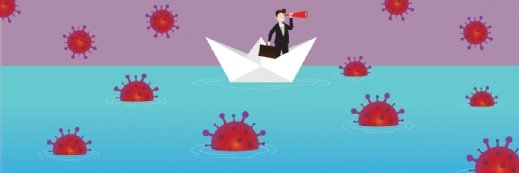
elenabs/istock via getty images
Blood Test Could Lead to Precision Medicine for Mood Disorders
A blood test made up of RNA biomarkers can tailor medication choices to individual patients with mood disorders, leading to precision medicine treatments.
A new blood test may reveal the biological basis of mood disorders and offer precision medicine approaches to treatment, according to a study published in Molecular Psychiatry.
Mood disorders affect one in four people in their lifetime, researchers noted. Depression in particular is the leading cause of disability for people ages 15-44. Because of a lack of objective tests and perceived stigma, mood disorders are often undiagnosed or misdiagnosed – for example, depression instead of bipolar disorder.
Additionally, patients with these conditions often do not receive adequate care, and can turn to self-medication with alcohol and drugs. In some cases, mood disorders may culminate with suicide.
In a disease area where subjective self-report of an individual or clinical evaluation by a healthcare professional isn’t always reliable, blood biomarkers have emerged as important tools for predicting future risk.
Blood biomarkers also pave the way for precision medicine, giving providers the ability to match patients with the right medications.
Researchers from Indiana University (IU) School of Medicine wanted to develop a blood test composed of RNA biomarkers for mood disorders. Over the course of four years, researchers used a comprehensive four-step approach to study the effects of the test in more than 300 participants.
Participants were followed over time, with researchers observing them in both high and low mood states. Each time, the team recorded what changed in terms of the biomarkers in their blood between the highs and lows.
Then, researchers leveraged large databases developed from all previous studies in the field to cross-validate and prioritize their findings. The team then validated the top 26 candidate biomarkers in independent cohorts of people with clinically severe depression or mania.
Finally, researchers tested the biomarkers in independent cohorts of people to determine how strong they were at predicting who is ill, as well as who will become ill in the future.
With this approach, the team was able to demonstrate how to match patients with medications, even finding a new potential medication to treat depression. The test can distinguish how severe a person’s depression is, their risk of severe depression in the future, and their risk of future manic-depressive illness.
"Through this work, we wanted to develop blood tests for depression and for bipolar disorder, to distinguish between the two and to match people to the right treatments," said Alexander B. Niculescu, professor of psychiatry at IU School of Medicine and lead author of the study.
"Blood biomarkers are emerging as important tools in disorders where subjective self-report by an individual, or a clinical impression of a health care professional, are not always reliable. These blood tests can open the door to precise, personalized matching with medications, and objective monitoring of response to treatment."
In addition to the treatment and diagnostic improvements uncovered in the study, the team also found that mood disorders are impacted by circadian clock genes – the genes that regulate seasonal, day-night, and sleep-wake cycles.
“That explains why some patients get worse with seasonal changes, and the sleep alterations that occur in mood disorders," Niculescu said.
This work builds on previous research from the IU team. Prior to this study, the group used blood biomarkers to track suicidality, pain, post-traumatic stress disorder, and Alzheimer’s disease.
"We have pioneered the area of precision medicine in psychiatry over the last two decades, particularly over the last ten years. This study represents a current state-of-the-art outcome of our efforts," said Niculescu.
"This is part of our effort to bring psychiatry from the 19th century into the 21st century, to help it become like other contemporary fields such as oncology. Ultimately, the mission is to save and improve lives."
The research team believes that this study has opened the door for their findings to be translated into clinical practice. The group is focusing on collaborating with pharmaceutical companies and doctors to start applying their discoveries and tools in real-world scenarios.
The researchers expect their work to play a vital role in improving quality of life for the many patients suffering from mood disorders.
"Blood biomarkers offer real-world clinical practice advantages. The brain cannot be easily biopsied in live individuals, so we've worked hard over the years to identify blood biomarkers for neuropsychiatric disorders," Niculescu said.
"Given the fact that one in four people will have a clinical mood disorder episode in their lifetime, the need for and importance of efforts such as ours cannot be overstated."



